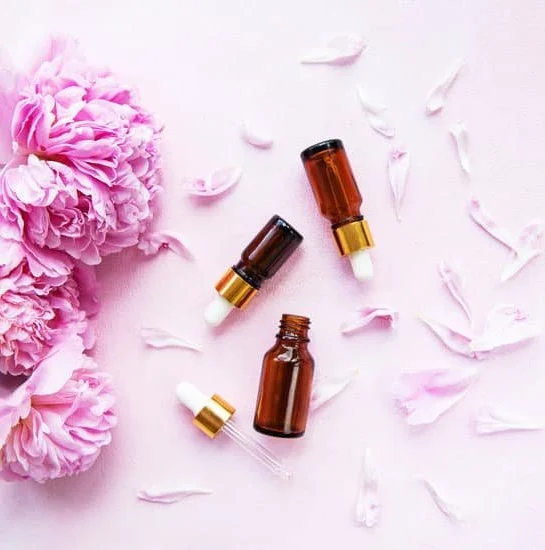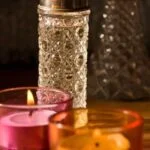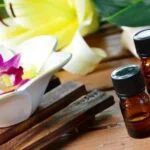Are you struggling to get a good night’s sleep? Aromatherapy might be the solution you’ve been looking for. Aromatherapy, the use of essential oils to promote wellness, has been used for centuries to aid in relaxation and sleep. In this comprehensive guide, we will explore the history and origins of aromatherapy for sleep, as well as its many benefits.
The concept of aromatherapy involves using natural plant extracts to enhance psychological and physical well-being. Essential oils are carefully extracted from plants and then used in various ways, such as through inhalation or topical application. These oils have specific properties that can help calm the mind and body, making them an ideal natural remedy for those struggling with sleep issues.
In addition to exploring the origins of aromatherapy for better sleep, we will also dive into understanding how aromatherapy works and discuss the different types of essential oils that can aid in a good night’s rest. Whether you’re new to aromatherapy or a seasoned user, this guide will provide valuable insight into how these natural remedies can improve your sleep quality. Stay tuned as we uncover the best essential oils for sleep and how to use them effectively.
Understanding Aromatherapy
Aromatherapy has been used for centuries as a natural remedy for various health concerns, including sleep difficulties. This practice dates back to ancient civilizations such as the Egyptians, Greeks, and Romans, who believed in the therapeutic properties of essential oils derived from plants. Aromatherapy is based on the principle that certain scents can have a profound impact on the mind and body, promoting relaxation, reducing stress, and ultimately improving sleep quality.
The concept of aromatherapy revolves around the inhalation or topical application of essential oils to stimulate the olfactory system, which then sends signals to the brain’s limbic system. This region of the brain is responsible for emotions, memories, and arousal, making it a crucial target for influencing mood and behavior. Essential oils can also directly affect physiological functions such as heart rate, blood pressure, and hormone levels when absorbed through the skin.
There are various types of essential oils that are commonly used to aid in sleep. Lavender essential oil is one of the most popular choices due to its calming and sedative properties. Other essential oils known for their sleep-inducing effects include chamomile, bergamot, frankincense, and sandalwood. Each type of essential oil has its unique aroma profile and chemical composition that contributes to its potential sleep benefits when used in aromatherapy techniques to help sleep.
Best Essential Oils for Sleep
When it comes to using aromatherapy to help sleep, certain essential oils are known for their sleep-inducing properties. These oils have been used for centuries in various cultures to promote relaxation and better sleep. Here are some of the best essential oils for sleep:
1. Lavender Oil: Lavender is perhaps the most well-known essential oil for promoting relaxation and improving sleep quality. It has a calming and soothing scent that helps to reduce stress and anxiety, making it easier to fall asleep and stay asleep.
2. Chamomile Oil: Chamomile is another popular essential oil known for its calming effects. It has sedative properties that can help alleviate insomnia and promote a more restful night’s sleep.
3. Valerian Oil: Valerian root has been used as a natural remedy for insomnia for centuries, and its essential oil has similar properties. It can help improve sleep quality by reducing the amount of time it takes to fall asleep and promoting deep, restorative sleep.
Tips on How to Use These Essential Oils Effectively for Better Sleep:
– Add a few drops of your chosen essential oil to a diffuser before bedtime.
– Mix a few drops of the essential oil with a carrier oil, such as coconut or jojoba oil, and apply it topically to pulse points or the bottoms of your feet.
– Create a pillow mist by mixing the essential oil with water in a spray bottle and lightly misting your pillow before bedtime.
By incorporating these essential oils into your bedtime routine, you can take advantage of their natural properties to improve your sleep quality without relying on synthetic substances or medications that may have unwanted side effects.
Aromatherapy Techniques for Sleep
Aromatherapy has been used for centuries as a natural remedy for various health issues, including sleep problems. The concept of aromatherapy involves the use of essential oils extracted from plants to promote physical and psychological well-being. These oils can be inhaled, diffused, or applied topically, and each method offers unique benefits for better sleep.
One effective technique for using aromatherapy to help sleep is through diffusion. A diffuser disperses essential oil molecules into the air, allowing you to breathe in the calming scents. This method creates a peaceful atmosphere that can aid in relaxation and prepare your body for a restful night’s sleep.
Additionally, inhalation involves directly inhaling the fragrance from an essential oil bottle or using a few drops on a cloth or cotton ball. Both methods can have a soothing effect on your mind and body before bedtime.
Another technique is topical application, which involves applying diluted essential oils directly onto your skin. When used correctly, certain essential oils can be absorbed through the skin and provide therapeutic benefits that contribute to better sleep. For example, massaging diluted lavender oil onto pulse points or the bottoms of your feet can promote relaxation and help calm the mind before bedtime.
Aromatherapy pillows sprays are also becoming popular among individuals looking to enhance their sleep quality. These products are designed to be sprayed on pillows and linens to create a calming environment that promotes relaxation and tranquility. The gentle aroma released by these sprays can help signal to your brain that it’s time to wind down and prepare for sleep.
Through the use of these various techniques, individuals struggling with sleep issues can experience significant improvements in their overall sleep quality by incorporating aromatherapy into their bedtime routines.
| Aromatherapy Technique | Benefits |
|---|---|
| Diffusion | Create a peaceful atmosphere conducive to relaxation |
| Inhalation | Soothe the mind and body before bedtime |
| Topical Application | Promote relaxation and calmness through absorption into the skin |
| Pillow Sprays | Create a relaxing environment that signals the brain it’s time for bed. |
Aromatherapy Products for Sleep
Aromatherapy offers a variety of products designed to promote better sleep. These products make it easy and convenient to incorporate aromatherapy into your nightly routine, helping you relax and unwind for a restful night’s sleep. Here are some popular aromatherapy products known for their effectiveness in aiding sleep:
- Aromatherapy candles: Scented candles infused with essential oils such as lavender, chamomile, and sandalwood can create a calming atmosphere conducive to sleep. The gentle flicker of candlelight adds to the relaxing ambiance.
- Aromatherapy diffusers: These devices release essential oil particles into the air, allowing you to experience the aroma and therapeutic benefits of the oils. Diffusers come in various types, including ultrasonic, nebulizing, and heat diffusers.
- Pillow sprays: Spritzing your pillow with a soothing blend of essential oils can help promote relaxation and ease you into a peaceful slumber. Common ingredients in pillow sprays include lavender, bergamot, and ylang-ylang.
These aromatherapy products serve as practical tools for creating a tranquil sleep environment at home. Whether used individually or in combination, they can enhance your overall sleep experience by harnessing the power of scent and natural botanicals.
In addition to these products, there are also specialty blends formulated specifically for promoting better sleep. These pre-mixed blends are carefully crafted to create an optimal combination of essential oils known for their sleep-inducing properties. Whether applied topically or diffused into the air, these blends offer a convenient way to experience the benefits of aromatherapy for improved sleep quality.
By incorporating aromatherapy products into your bedtime routine, you can create a serene atmosphere that signals your body and mind that it’s time to unwind and prepare for rest. With the right products and techniques, aromatherapy can become an effective ally in your quest for better sleep.
Aromatherapy Recipes for Sleep
Aromatherapy has long been used as a natural remedy to promote relaxation and improve sleep quality. One of the most popular ways to harness the power of aromatherapy for sleep is by creating custom essential oil blends that cater to individual preferences and needs.
DIY Essential Oil Blends
Creating your own aromatherapy blends for sleep can be a rewarding and personalized experience. Some popular essential oils known for their sleep-inducing properties include lavender, chamomile, and ylang-ylang. A simple blend of lavender and chamomile oil can create a calming and soothing effect that helps relax the mind and body before bedtime.
Another effective combination is bergamot, cedarwood, and frankincense oils, which are known for their grounding and sedative properties. Experimenting with different essential oil combinations can help individuals find the perfect blend that works best for them.
Using Aromatherapy Blends
Once you have created your custom aromatherapy blend, there are various ways to use it to promote better sleep. Adding a few drops of the blend into a diffuser can fill the room with the relaxing aroma, creating a tranquil environment conducive to sleep. Alternatively, mixing the essential oil blend with a carrier oil such as sweet almond or jojoba oil can create a calming massage oil for use before bedtime.
In addition, adding a few drops of the essential oil blend onto a cotton ball or handkerchief and placing it near your pillow can provide subtle but effective aroma therapy throughout the night. The key is to find a method that works best for you and incorporate it into your nightly routine for optimal results.
Sharing Your Experience
Experimenting with different aromatherapy recipes for sleep can be an enjoyable journey towards finding natural solutions for better rest. If you have had success with creating your own essential oil blends or using specific aromatherapy techniques to aid in sleeping, consider sharing your experiences with others. By exchanging tips and insights on using aromatherapy for sleep, we can all benefit from this natural approach to improving our overall well-being.
Aromatherapy and Sleep Disorders
Aromatherapy has been used for centuries as a natural remedy for various ailments, including sleep disorders. The use of essential oils derived from plants and herbs is known to have therapeutic effects on the mind and body, promoting relaxation and a sense of calm that can aid in achieving better sleep. By harnessing the power of scent, aromatherapy can potentially offer relief to individuals struggling with sleep disorders such as insomnia, sleep apnea, and restless leg syndrome.
Studies have shown that certain essential oils have sedative properties that can help alleviate symptoms of sleep disorders. Lavender, for example, has long been used for its calming effects and is one of the most popular essential oils for promoting better sleep. Other essential oils like chamomile, bergamot, and cedarwood are also known for their relaxing properties that can help improve overall sleep quality.
In addition to using single essential oils, aromatherapists often create unique blends designed specifically for addressing sleep disorders. These blends combine different essential oils known for their relaxing and sedative effects, offering a holistic approach to improving sleep quality. Whether used in a diffuser or applied topically, these blends can provide relief to individuals suffering from sleep disorders.
| Aromatherapy Essential Oils | Effect |
|---|---|
| Lavender | Calming and relaxing |
| Chamomile | Sedative and calming |
| Bergamot | Mood-lifting and anxiety-reducing |
| Cedarwood | Sedative and grounding |
Aromatherapy for a Better Sleep Routine
Aromatherapy has been used for centuries as a natural remedy for sleep-related issues. The use of essential oils to promote relaxation and improve sleep quality can be traced back to ancient civilizations such as the Egyptians, Greeks, and Romans. These early cultures recognized the therapeutic benefits of aromatic plant oils and used them in various rituals and healing practices. Today, aromatherapy continues to be a popular alternative approach for those seeking better sleep.
Creating a Relaxing Sleep Environment
Incorporating aromatherapy into a bedtime routine can help create a relaxing sleep environment. By using essential oils with calming properties such as lavender, chamomile, and bergamot, individuals can signal to their bodies that it’s time to unwind and prepare for rest. Whether through diffusion, topical application, or inhalation, the gentle aromas of these oils can set the stage for a peaceful night’s sleep.
Using Aromatherapy Throughout the Evening
To fully benefit from aromatherapy for better sleep, individuals can incorporate it into their evening routine in various ways. This may include starting with an aromatherapy bath using essential oil-infused bath salts or body wash, followed by diffusing relaxing scents in the bedroom while winding down for the night. Additionally, applying a diluted blend of soothing essential oils to pulse points or using pillow sprays infused with sleep-inducing scents can enhance relaxation and promote better sleep.
Combining Aromatherapy With Other Relaxation Techniques
For an even more potent effect on improving sleep quality, individuals can combine aromatherapy with other relaxation techniques such as meditation or gentle yoga stretches before bed. The synergistic effect of these practices can help reduce stress levels, calm the mind, and prepare the body for deep restorative sleep. By incorporating aromatherapy into a comprehensive approach to better sleep, individuals may experience more consistent and rejuvenating rest each night.
By integrating aromatherapy into their nightly routine through creating a relaxing environment, using it throughout the evening, and combining it with other relaxation techniques-individuals may find that they are able to wind down more easily and experience deeper and more restful sleep.
Conclusion
In conclusion, aromatherapy has been used for centuries as a natural remedy to promote better sleep. From its origins in ancient civilizations to its modern-day popularity, aromatherapy continues to provide numerous benefits for those seeking a more restful night’s sleep.
The use of essential oils such as lavender, chamomile, and valerian root have been proven effective in aiding relaxation and promoting a sense of calm conducive to sleep. Whether used through diffusion, inhalation, or topical application, these essential oils can play a significant role in improving overall sleep quality.
As we’ve discussed the various techniques, products, recipes, and potential benefits of using aromatherapy for sleep disorders, it’s important to highlight the simplicity and accessibility of incorporating aromatherapy into one’s bedtime routine. By creating a relaxing environment with the help of aromatherapy candles, diffusers, or pillow sprays, individuals can experience improved sleep quality without turning to synthetic medications or harsh chemicals.
This natural approach not only enhances the overall experience of falling asleep but also contributes positively to one’s overall well-being.
With this in mind, I urge readers to consider trying aromatherapy as a way to improve their own sleep quality. By taking advantage of the benefits that essential oils and aromatherapy techniques have to offer, individuals can achieve a deeper and more restorative night’s sleep.
As you embark on this journey towards better sleep using aromatherapy, I encourage you all to share your experiences and insights with others who may also be struggling with their own sleep health. Let us collectively explore the potential of aromatherapy for promoting better sleep and enjoy the rejuvenating benefits it has to offer.
Frequently Asked Questions
What Is the Best Essential Oil to Help You Sleep?
The best essential oil to help you sleep is lavender. Lavender oil is known for its calming and relaxing properties, which can promote better sleep quality and reduce insomnia symptoms.
Do Aroma Diffusers Help You Sleep?
Aroma diffusers can help with sleep by dispersing essential oils into the air, creating a soothing and relaxing environment. The calming scents of certain essential oils can help with relaxation and ultimately aid in falling asleep easier.
What Essential Oil Blend to Stay Asleep?
An essential oil blend that can help you stay asleep includes a combination of lavender, chamomile, and sandalwood. These oils are known for their sedative effects, which can promote deeper and more restful sleep throughout the night.

Are you looking for a natural way to improve your health and wellbeing?
If so, aromatherapy may be the answer for you.





